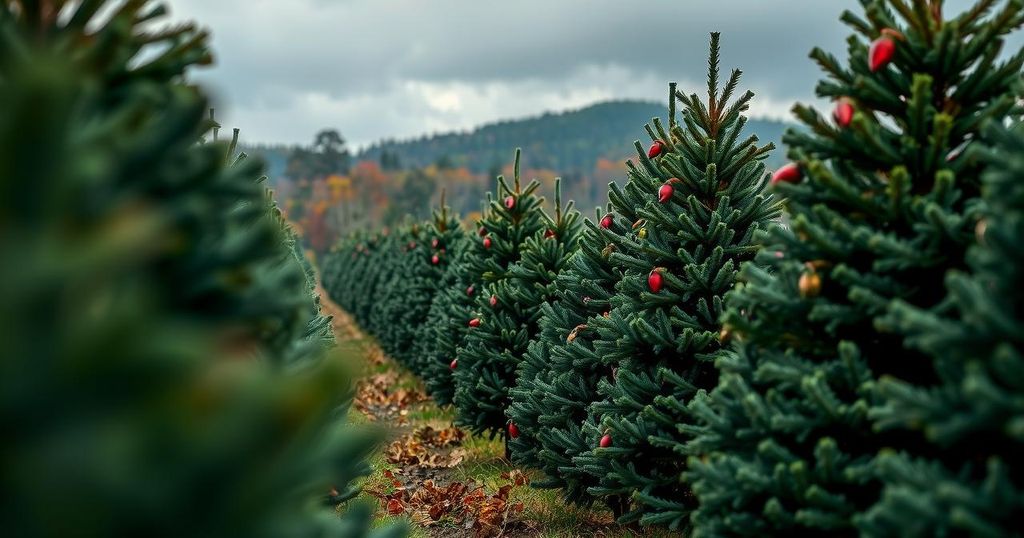The North Carolina Christmas tree industry continues to operate successfully despite Hurricane Helene causing damage to some farms. Industry experts assert that Fraser fir supply remains stable, and consumers can find these trees at various retail outlets. Growers are facing logistical challenges but have largely kept the harvest on schedule, with prices for trees ranging from $65 to $250.
The Christmas tree industry in North Carolina remains operational despite the significant challenges posed by Hurricane Helene, which impacted the region in late September. Although numerous farms experienced damage, including Cartners Christmas Tree Farm in Avery County, which lost approximately 7,000 trees, state officials believe that the overall supply of Christmas trees will not be adversely affected. NC State Extension specialists Will Kohlway and Jamie Bookwalter reassure consumers that Fraser firs, a dominant species in the state, will be available for purchase across various retail venues. The local agricultural community is making concerted efforts to navigate logistical hurdles while ensuring that the holiday season proceeds smoothly for all stakeholders involved.
Fraser firs, which thrive at high elevations, are predominantly cultivated in western North Carolina, making the state a significant producer with over 50 million trees each year. Even amid Hurricane Helene’s aftermath, including damaged roads and restrictions on farmer access, the harvest has remained largely on schedule, with growers making necessary adjustments to maintain supply chains. North Carolina’s Christmas tree farms engage in extensive shipping operations to meet consumer demands across the United States.
Market prices for Fraser firs range from $65 to $250, depending on factors such as size and sales location. As the holiday season approaches, consumers are encouraged to purchase these trees to support local growers. The North Carolina Christmas Tree Association has provided resources for locating real trees at various retail outlets. While some growers continue to face accessibility challenges due to the hurricane’s effects, authorities remain optimistic that the overall impact on the Christmas tree market will be minimal.
Finally, after the current harvest season concludes, experts will collaborate with state and local partners to assess any long-term impacts of storm damage on future growing seasons. This proactive approach aims to fortify the resilience of North Carolina’s vital Christmas tree industry.
The Christmas tree industry is a critical component of North Carolina’s agricultural landscape, where Fraser firs are the most commonly grown species. During recent adverse weather events, such as Hurricane Helene, tree farms faced severe threats, including landslides and flooding, which prompted extensive recovery efforts and logistical challenges for growers. The resilience of this sector is evidenced by the commitment of local growers and agricultural specialists to ensure that consumers have access to high-quality, locally-grown Christmas trees.
In summary, although Hurricane Helene caused notable challenges for North Carolina’s Christmas tree farms, industry experts affirm that the supply of Fraser firs remains stable. Ongoing collaborative efforts among agricultural agencies and local growers aim to mitigate the impact of the hurricane, ensuring that consumers will have access to Christmas trees in time for the festive season. The industry’s response underlines its resilience and dedication to supporting both economic stability and consumer demand amid recovery efforts.
Original Source: cnr.ncsu.edu






